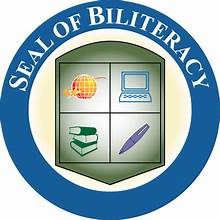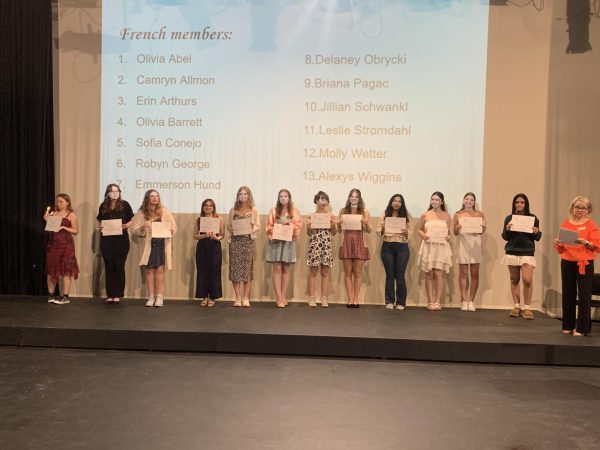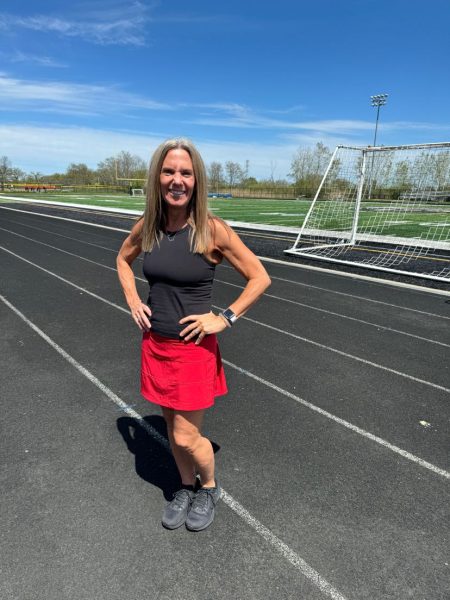Teachers share importance of voting to students
In this year’s election, teenagers are getting registered to vote and be a part of America’s democracy. Every year, more and more students are encouraged to register to vote for the election. There is a voting booth set up in the school for everyone to make the process easier.
“It’s pretty easy, and that’s the point of it. You’re more likely to vote if you’re registered. That sounds sort of redundant, but people just don’t make that active point to register. Voting is really simple. It’s straightforward. You can get sent a ballot to your home. You get easily notified way in advance when the elections are, where you need to go to vote. It takes minutes to actually vote, but people don’t do it because they miss that step of initially registering to vote,” Government teacher Erin Wise.
Voting can be a confusing topic for many people. People just don’t understand the process and how it works. Some make it more difficult than it is. Registering to vote and voting now had become so much easier for everyone through the use of technology and modern ways.
“Thankfully, in our state now, when you go to renew your driver’s license, much like being a blood donor, you can check off that you want to register to vote. Unfortunately, for the student population, if you’re getting your license at 16, and then not getting it renewed until you’re 21, there’s a good couple of years where you’re not voting and you’re not getting an option to register. Registration has been made so simple now through the county. You can register online up to 30 days before the election, and then there are still other places you could go to register in person even on the day of the election. Registering is just simply confirming your address, confirming that you’re a citizen, then hitting enter,” Wise said.
A lot of students now ask: “Why is voting so important?” and it can be answered very simply. When someone votes, they become a part of America’s democracy and have their voices heard.
“It’s not just your individual vote, but the vote of people like you. So let’s say 18-22 year olds don’t vote. Why should the politicians do anything for 18-22 year olds if they aren’t voting? Think about how ridiculously expensive college has gotten and how financial aid can help. But why should the government do anything for 18-22 year olds if they don’t vote? So it’s not just you and your one vote, but the people like you,” said social studies department chair Chris Kubic.
Along with registering to vote, some people enjoy to help or work on campaigns. Some people who want to learn about or have future plans to work in office enjoy to volunteer to work in campaigns.
“[Working on a campaign] really varies. You could be working from going door to door or putting signs up in someone’s yard, with their permission of course, to stuffing envelopes, to making phone calls. You could even design social media pieces. It really just depends on your interests and abilities for political campaigns. Often people who initially run for office usually like to see the behind the scenes part of political campaigns,” Kubic said. “Initially when people run for office, they start out as campaign helpers because they’re interested in how the campaigns work. That way later, when they want to start, they end up having those experiences and connections.”
Students can get involved in campaigns and political offices if they are interested in government and politics. Students who would like to work in campaigns or volunteer could go see Chris Kubic because he can get them connected to any campaign. Senior Ellen Stojak worked for a campaign
“So when I went to Springfield, I went to go page for the State Senate. So I was a page for our local representative. I got to sit in on the bills they were voting on that day, and run errands for her, and pass papers. I got to meet all the different senators, which was pretty cool. I was also a volunteer organizer on JB Pritzker’s Campaign for Governor for like five or six months of my junior year,” said senior Ellen Stojak.
Some people wonder how long campaigns go on for, and it’s actually all the time. At the end of the election, people start to brainstorm for their campaigns. People who work on them work hard and put a lot of effort into them.
“About since January to around May, I worked about 10 to 15 hours a week while volunteering there. I did canvassing and phone banking. Canvassing is when you go out and talk to different members of the community that in the past had voted Democratic since JB was a Democratic candidate. So we’d go talk to them and make sure they were registered to vote and see where they were standing on and different issues and collect data on where they were standing, how we could change that, different issues that were important to the community members. We did phone banking which is where we made calls to similar members that have voted Democratic in the past or have interests,” Stojak said.




